1. Occupy Wall Street Anniversary Festival
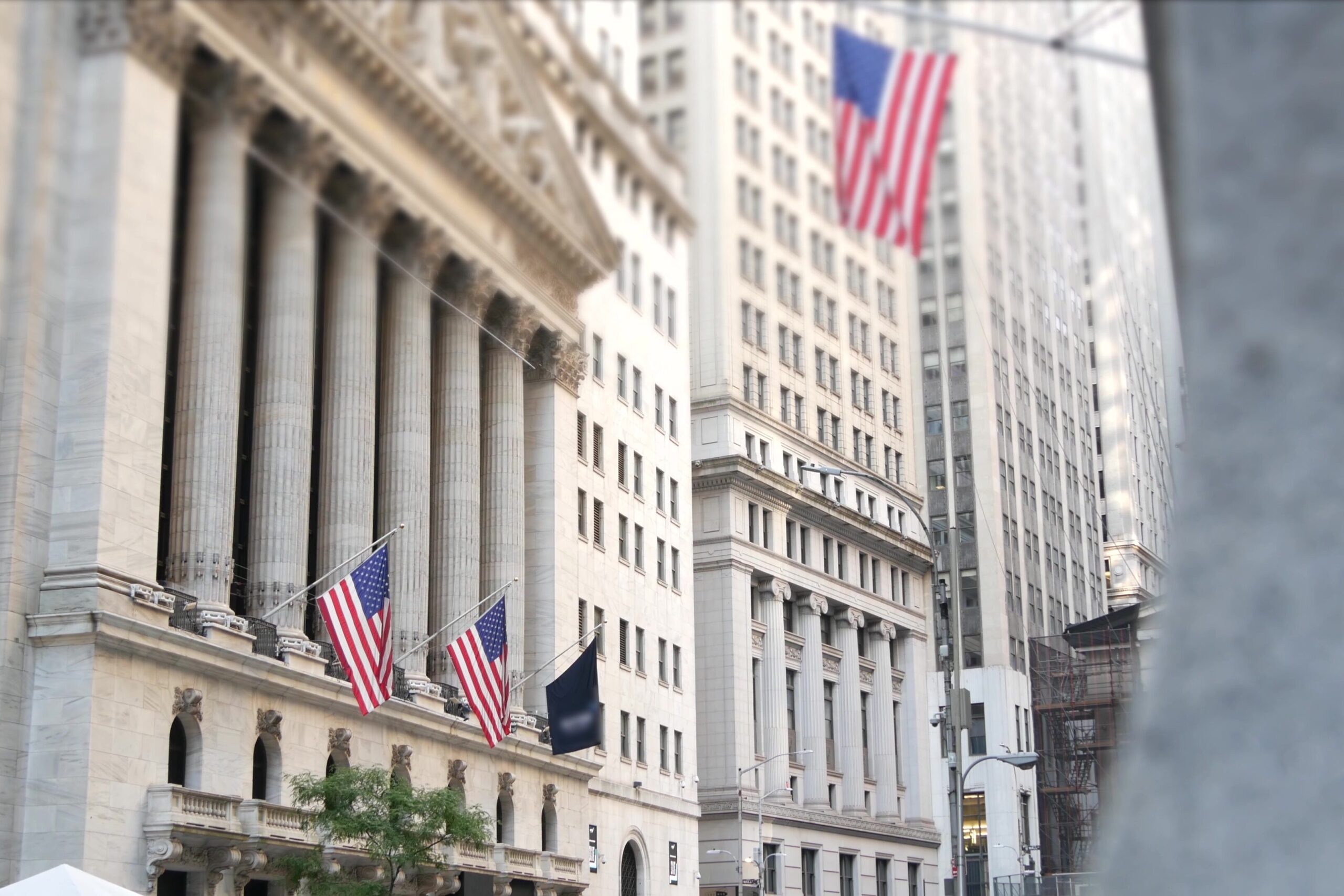
In 2011, the Occupy Wall Street movement sparked a global conversation about economic inequality, and it didn’t take long for its protests to turn into something much bigger. The movement’s central message was simple but powerful: the richest 1% of Americans were controlling the wealth while the rest of the country struggled to get by. The protests gained momentum, and their anniversary has since become a day for rallies and festivals to commemorate the ongoing fight for economic justice. These festivals are often a blend of political speeches, art, music, and community engagement.
Originally, Occupy Wall Street focused on the symbolic occupation of Zuccotti Park, but today, it lives on through grassroots events across the country. Local activists use the anniversary as a platform for raising awareness about wealth inequality, often incorporating artistic performances and food vendors to draw in crowds. These events are meant to keep the message of social justice alive, celebrating the collective power of the people, even as the issues of the 99% still echo today.
2. The Woodstock Anniversary Festival
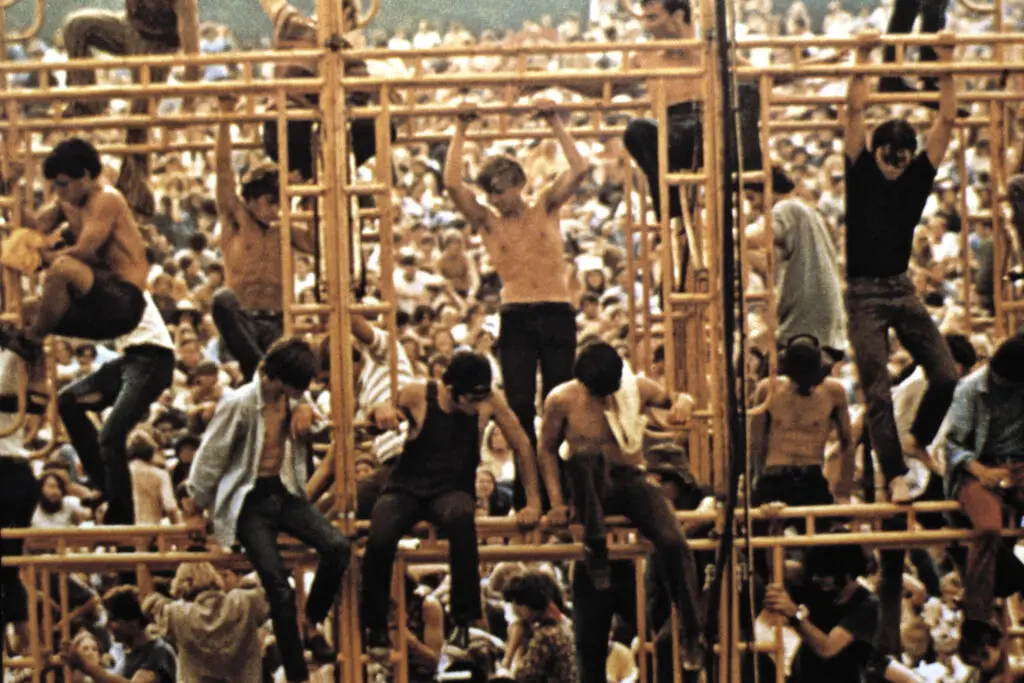
While Woodstock is often remembered as the quintessential music festival of the ’60s, its origins are deeply rooted in political protest. What started as a music event in 1969 turned into a symbol of resistance against the Vietnam War and other social injustices. The sheer number of young people who gathered at Max Yasgur’s farm was a direct response to the political climate of the time, with many attendees using their presence to protest against the war and demand civil rights for marginalized groups.
Since then, Woodstock anniversaries have transformed into festivals that celebrate freedom, peace, and music—along with a bit of rebellion. The modern-day festivals, although no longer solely dedicated to anti-war activism, still pay homage to the protest roots of the original event. Music performances are often intertwined with politically charged messages, with modern artists calling for action on social justice issues, from climate change to racial inequality.
3. The Mardi Gras Indians Parade
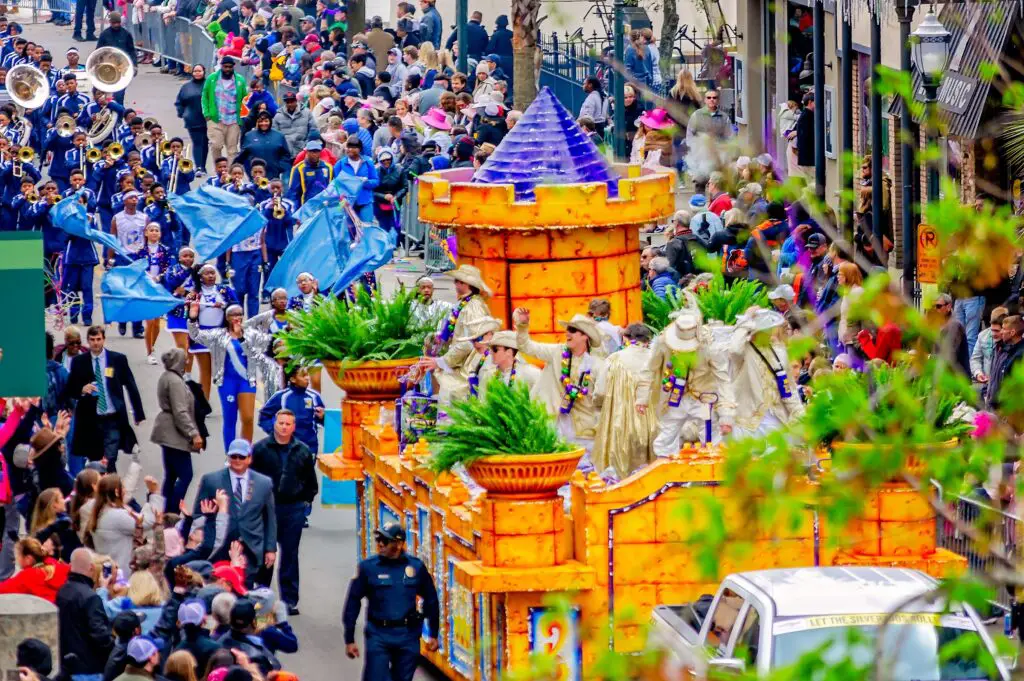
Mardi Gras celebrations in New Orleans are known for their exuberance and flair, but the Mardi Gras Indians have a much deeper history rooted in political protest. In the late 19th century, African Americans in New Orleans began forming masked tribes as a form of resistance against oppression, using their vibrant, elaborate costumes to celebrate African culture and identity. The tradition was a statement of solidarity with Native American tribes, who had historically been marginalized, just as Black communities had been.
These parades, which are often seen as colorful and festive today, originally started as a form of political protest against systemic racism and inequality. The Mardi Gras Indians carry with them not only the pride of their heritage but also the weight of decades of fighting for racial justice. Each year, their elaborate costumes tell a story of resistance and resilience, proving that what started as a protest remains a powerful form of political expression.
4. The Labor Day Parade
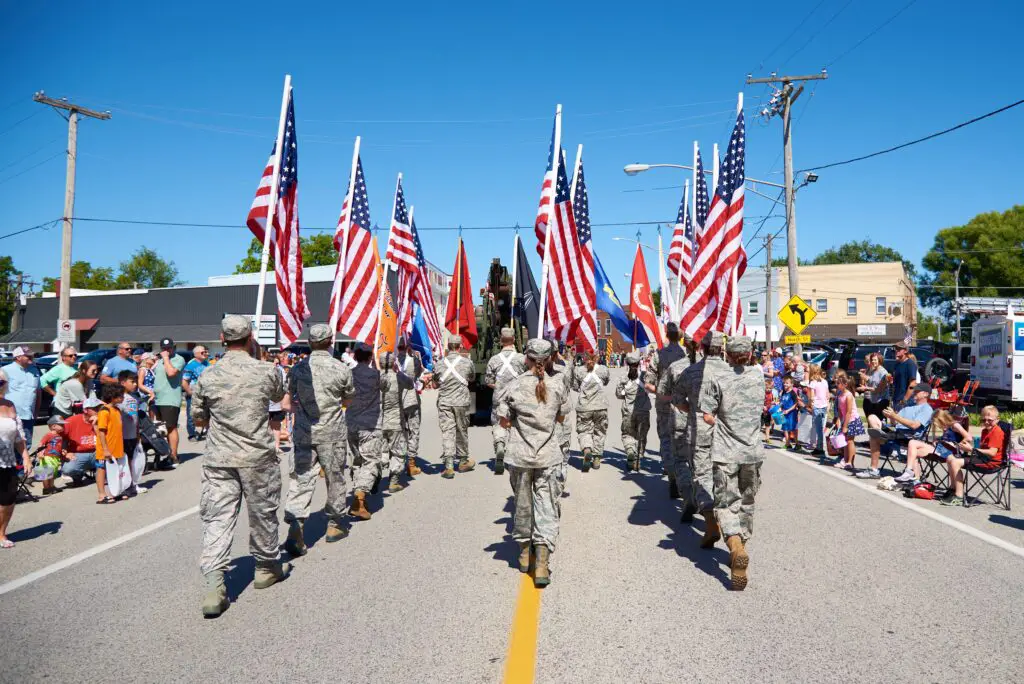
Labor Day parades across the U.S. are now a way to celebrate the end of summer, but they actually began as protests by labor unions advocating for workers’ rights. In the late 19th century, labor movements across the country were gaining traction, as workers fought for fair wages, better working conditions, and shorter workdays. The first Labor Day parade, held in New York City in 1882, was a direct result of these movements, and it attracted thousands of workers who marched in solidarity for their rights.
What was originally a demonstration for worker’s rights has now become a holiday that celebrates the contributions of American workers, but its roots in protest are still evident. Labor Day festivals today, while less politically charged, continue to honor the ongoing struggles of workers, especially those in low-wage industries. Many modern festivals incorporate discussions about labor laws, wages, and economic disparities, keeping the political aspect of the holiday alive, albeit in a more subdued form.
5. The Burning Man Festival
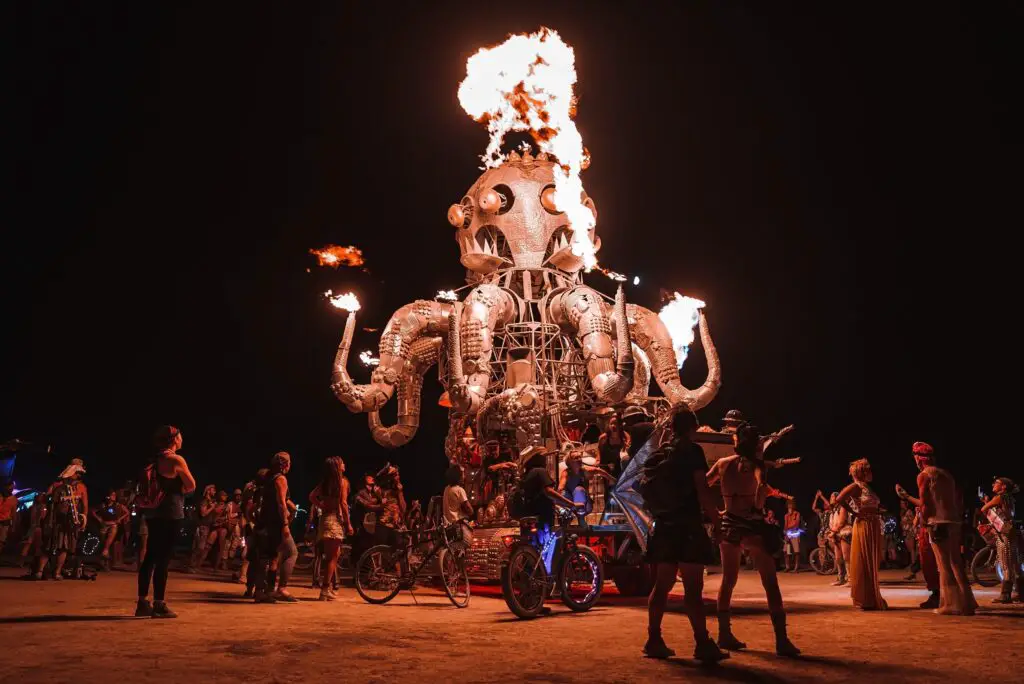
Burning Man, an annual festival held in the Nevada desert, is known for its wild art installations, performances, and massive effigy burning. While it’s often associated with creativity and self-expression, the event has its origins in political protest. In the early ’80s, Larry Harvey and Jerry James organized a gathering on Baker Beach in San Francisco as a way to rebel against the traditional norms of society. The original event, which involved burning an effigy, was an act of defiance against conventional societal values and commercialism.
Since then, Burning Man has evolved into a global phenomenon, but its roots as a protest against mainstream culture are still visible in its “leave no trace” ethos, anti-corporate stance, and commitment to radical self-expression. Attendees still use the festival to engage in political and social activism, with many installations highlighting issues such as environmental sustainability and personal freedom. Though it’s now celebrated as a creative haven, the festival’s rebellious spirit remains as a testament to its protest origins.
6. The Pride Parade
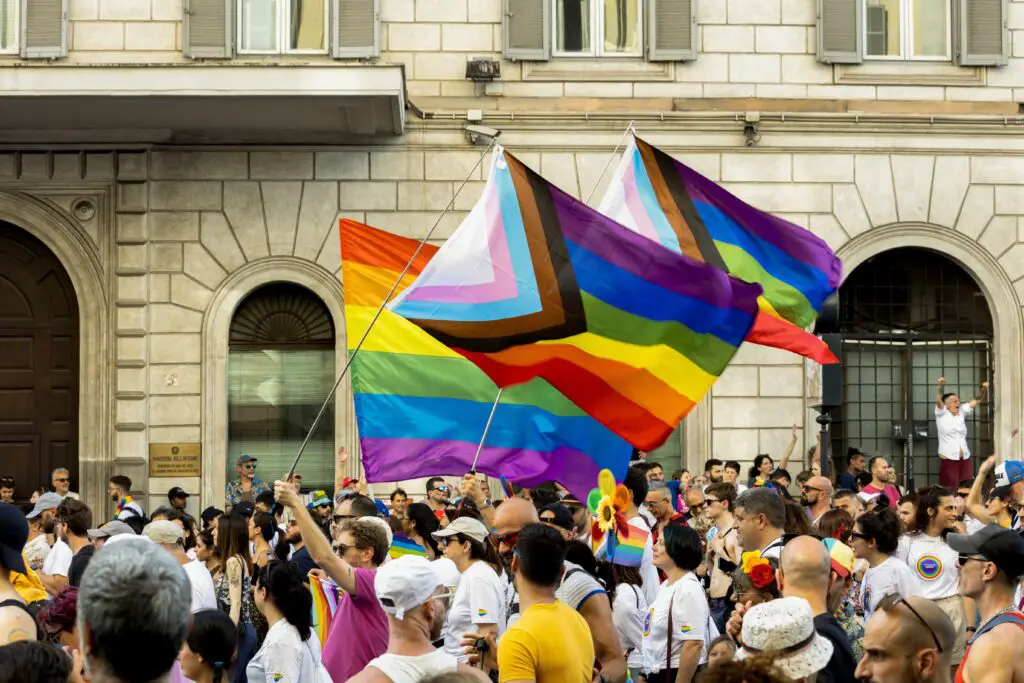
The Pride Parade, which now takes place in cities across the globe, has its origins in the 1969 Stonewall Riots in New York City. These riots were a direct response to police brutality against LGBTQ+ individuals, and they sparked a broader movement for LGBTQ+ rights. The first Pride parades, which began in the early ’70s, were protests against the criminalization and marginalization of LGBTQ+ people. The celebration of Pride was initially a way for the community to assert its right to exist and to be treated with dignity.
Today, Pride festivals are both a celebration and a call for action, reminding the world that the fight for LGBTQ+ rights is ongoing. These festivals have become a global movement, with floats, speeches, and performances that focus on everything from marriage equality to the fight against homophobia. While they are certainly joyous celebrations, the political roots of Pride remain central to the message, continuing to push for full equality and justice for the LGBTQ+ community.
7. The San Francisco Cherry Blossom Festival
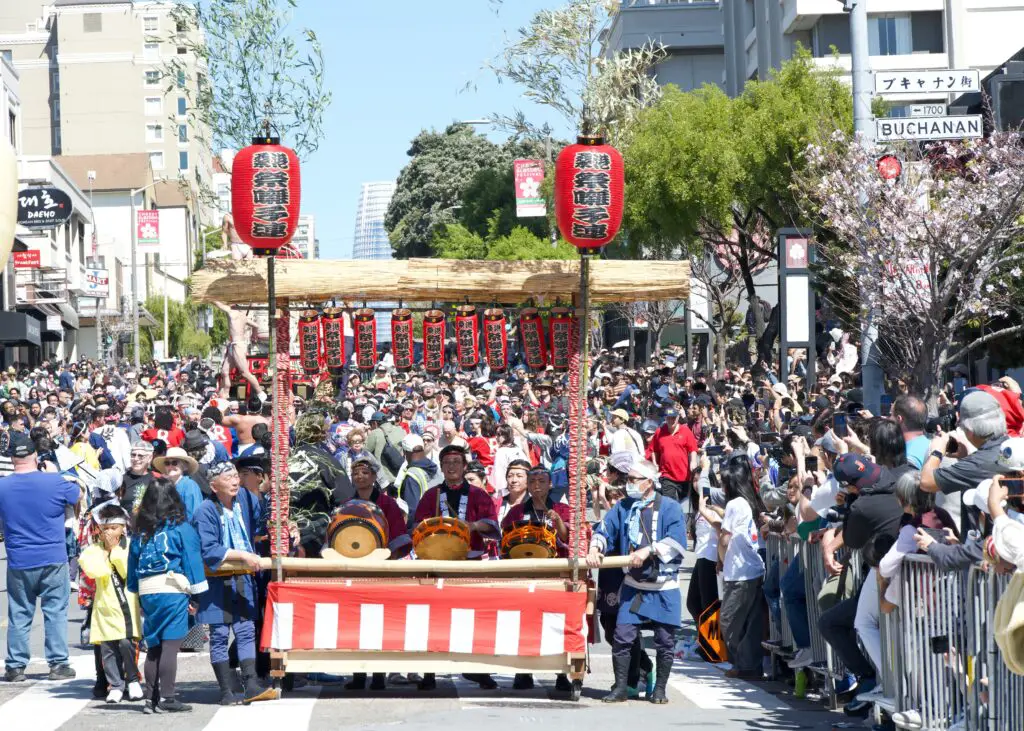
What began in 1967 as a way to honor the Japanese-American community quickly turned into a political protest during the Civil Rights Movement. The San Francisco Cherry Blossom Festival, celebrated every spring in Japantown, was initially intended to showcase cultural pride, but as tensions over racial equality grew, it became a platform for advocating for Asian-American rights. The event was particularly meaningful as it offered an opportunity to demonstrate solidarity with other marginalized groups fighting for social justice at the time.
Today, the festival still celebrates Japanese-American culture, but it has also maintained its political roots. Many of the performances and art exhibits focus on issues facing the Asian-American community, from immigration rights to anti-Asian hate crimes. By continuing to tie cultural celebration with political activism, the festival serves as a reminder of how protests can evolve into powerful cultural movements.
8. The Vegan Festival

While veganism has become increasingly popular in recent years as a lifestyle choice, it started as a form of protest against the environmental and ethical implications of animal agriculture. The first Vegan Festival in the U.S., held in the ’90s, grew out of protests against factory farming and the mistreatment of animals. Activists used food festivals to not only promote veganism but to raise awareness about the harmful impact of meat production on the environment and animal rights.
These festivals, often featuring food trucks, vegan cooking demos, and sustainability talks, are as much about advocacy as they are about enjoying plant-based food. Today, vegan festivals have grown exponentially, with many now incorporating discussions on broader environmental issues, such as climate change and food justice. While their original political focus was on animal rights, they’ve evolved into a movement that pushes for larger systemic change in how we approach food and the planet’s future.
